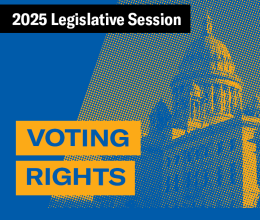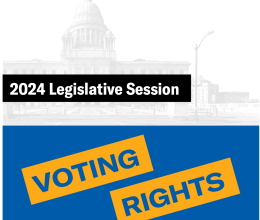(Publc Domain/Wikipedia)
In March 1812, the Boston Gazette coined the phrase gerrymander, and a cartoon depicting a salamander-like beast made up of the far-reaching towns of a newly created district in Massachusetts became the iconic cartoon of the practice.
More than 200 years later, we’re taking on another kind of gerrymandering.
Individuals incarcerated at the ACI in Cranston can’t use the parks or libraries, attend public meetings, or send their children to the district’s public schools. Most individuals cannot vote, and those who can must do so by mail ballot for the district in which they truly live. Yet when it comes to drawing new voting districts in Rhode Island, any individuals incarcerated at the ACI are recorded as living on Howard Avenue, not at the address they lived before they were imprisoned.
This practice, known as prison-based gerrymandering, artificially inflates the number of residents in the prison’s districts, giving the true residents of the district more political influence than any other district. In fact, under the current plan, about 15 percent of House District 20 is comprised of voters who cannot vote in Cranston. At the same time, the voting strength of the communities from which the inmates come – often poor urban areas – is diluted.
Yesterday, we testified before the House Judiciary Committee in strong support of a bill that would correct this and require all prisoners to be counted, for voting purposes only, at their last known address. We hope you’ll join us in telling your legislators that it is time to restore equal representation for all in Rhode Island.
(h/t Boston Magazine)




